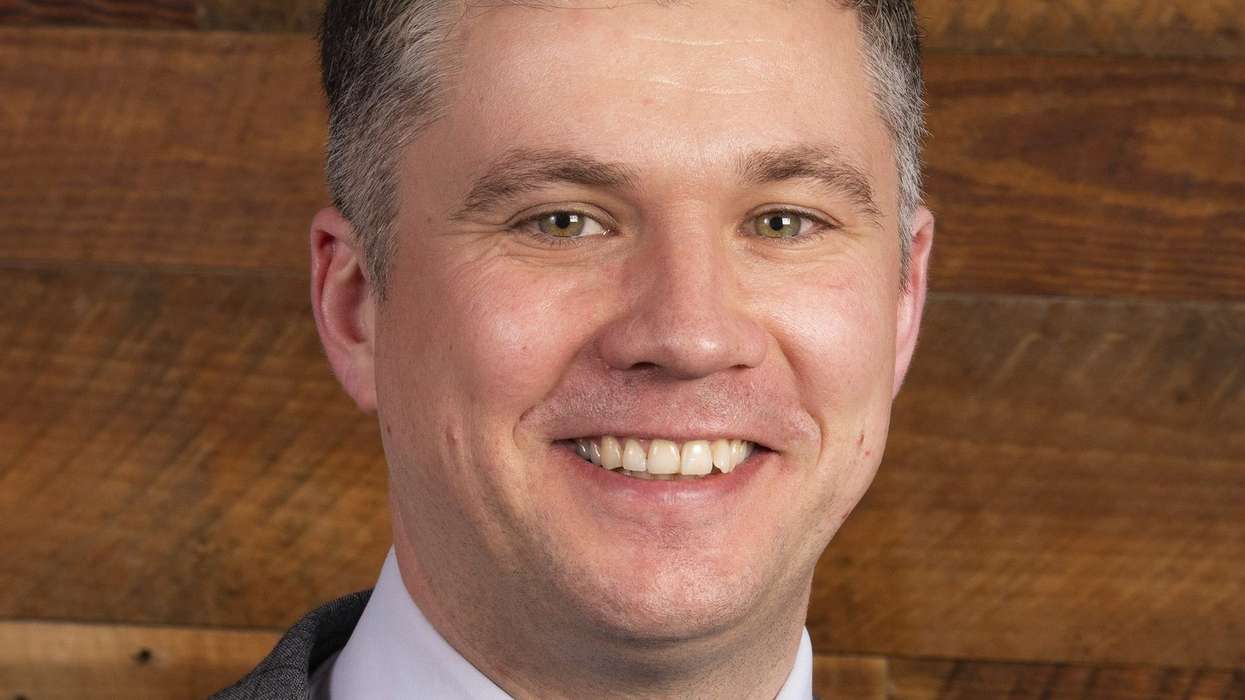Professor Harry McQuillan has said community pharmacists in the UK must change their focus from an ‘accuracy of supply’ to a ‘safety of supply’ model when it comes to dealing with patients.
“The main take away message from tonight’s lecture is for pharmacy professionals to really challenge themselves about whether they are focused on accuracy of supply or safety of supply," he said at this year’s UCL School of Pharmacy Lecture in London on Thursday, 15 June.
“For our community pharmacists it must be about safety, including prescribing, and ensuring patients and citizens get the maximum benefit from prescribed medicines.
“To deliver this, we need to invest in our teams -- harness technology and always be willing to take the next step in a more clinical future.”
The Chief Executive Office of Community Pharmacy Scotland, however, noted that at a time when the UK was grappling with an unprecedented national debt crisis exacerbated by severe cost of living and spiraling inflation, community pharmacy will need to make a “compelling case" of where the priority should be in the sector.
Expanding on the financial woes of the country, he compared the current national debt of the UK, which stood at a staggering 270 percent of GDP in September 2022, with the previous record-breaking national debt of 250 per cent at the end of WWII.
“There will be no immediate change in this position,” he warned.
He said the changing political dynamics in all four nations – while England, Scotland and Wales have had their own fair share of fairly new ministerial appointments, Northern Ireland is facing a power vacuum – will mean that it will be more difficult for the sector in each nation to engage with their respective government machinery.
Earlier, in his opening address, Mark Lyonette, CEO of the National Pharmacy Association, set the tone of the event by saying that the sector's moment had finally arrived in the last few years.
"Despite all the obvious and real funding challenges across the UK for community pharmacy, it really does feel like community pharmacy’s moment has well and truly arrived in the last few years" he said with a health warning: "some of you might think it a bit controversial", arguing that "over those last few years we have seen, in different ways and in different parts of the UK, that the perceptions of what the sector can offer, can contribute have been changing mostly for the better."
Expanding on how these 'changing perceptions' had started making a mark in the corridors of power, Lyonette added: "I went back to HM Treasury last week and for the first time in five years as the Chief Executive of the NPA I was delighted to hear that the key question from the Treasury officials was not so much (about) ‘how much does it cost’ (but) it was more of ‘how far can community pharmacy go’."
This was a theme reechoed by McQuillan later in the evening building when he argued that pharmacy was "potentially on the cusp of a transformation".
He praised Wales’ chief pharmaceutical officer and highlighted Andrew Evans' Six C’s principles – something McQuillan felt the sector across the board should embrace and emulate. "Wales’ Six C’s really appeal to me: three C’s for the pharmacists and their teams – capacity, capability and continuity – and in terms of what you deliver from the pharmacy perspective –community, connectivity and collaboration.”
He said he looked forward to tech-enabled community pharmacies keeping people well at home, using prescribed medicine and personalised care. Pharmacist prescribing, he said, would be a key factor ensuring that community pharmacy will remain a critical partner in the delivery of healthcare.
Also speaking at the event held at the Royal Society, Catherine Duggan, CEO International Pharmaceutical Federation, said: “FIP’s vision is for a world where everyone benefits from access to safe, effective, quality and affordable medicines and health technologies, as well as from pharmaceutical care services provided by pharmacists, in collaboration with other healthcare professionals.
"Throughout the pandemic, as the lights went out across all our communities in a global lockdown, community pharmacies, pharmacists and their teams remained open providing access to medicines supplies, advice and expertise in all our communities.
"From the learnings of that time and the visions of our community pharmacy section, FIP is ensuring that community pharmacy continues to meet the needs of patients and the public by providing needs based pharmaceutical care in all communities, nations, regions and the globe.’’
'Pharmacy in England can be Scotland on Steroids'
For his part, Nick Kaye, Chair of the National Pharmacy Association, Kaye said: “It’s time for community pharmacists to step forward with greater confidence into all areas of clinical practice involving medicines use. The extent to which we are successful in delivering NHS prescribing services will be deciding factor in the future of our sector across the UK.
"I am delighted to be associated with this prestigious event, which gives pharmacists permission to remove ourselves momentarily from the day job and contemplate our soul as a profession”.
“Harry’s lecture reminded us that Scotland in so many ways a beacon of excellent pharmaceutical care, even though the challenges there are very real, notably around workforce. My message is that it’s not inevitable that England’s pharmacies should lag behind our counterparts in Scotland and Wales. There’s nothing intrinsic about England’s pharmacists from a skills point of view that means we are incapable of delivering a wider range of clinical services at scale.
"In fact, England’s community pharmacy network could one day be ‘Scotland on Steroids’ – an inspiration and model for others to follow, in the UK and across the world.”
Another discussant, James Davies, Director for England Royal Pharmaceutical Society, said that "the profession is moving away from a focus on the supply of medications towards providing care delivered through services.
"There is an opportunity for a strong future for community pharmacy, through application of pharmacists’ core skills of risk management, improving safety, driving local health promotion and increasingly through independent prescribing," he said.
"To make this happen we will need to step out of existing pharmacy structures and work across the pharmacy professions. Something that has arguably been achieved faster in Scotland and Wales than in England. Today’s lecture provided a platform through which those future opportunities could be discussed and shared”.
Nigel Clarke, former chair of the General Pharmaceutical Council chaired the event, which brought together some 200 pharmacists, students, academics and healthcare stakeholders, to share ideas and good practice.
The 2023 Pharmacy Lecture themed 'Community Pharmacy in the 21st Century NHS' was jointly organised by University College London School of Pharmacy, the Royal Pharmaceutical Society and National Pharmacy Association.











